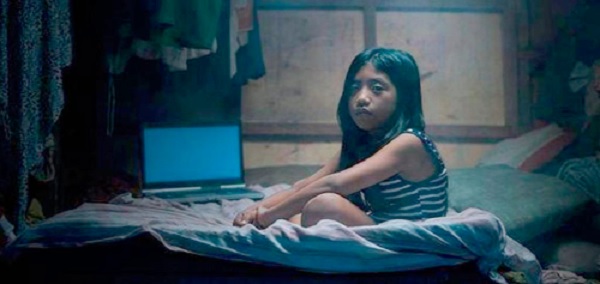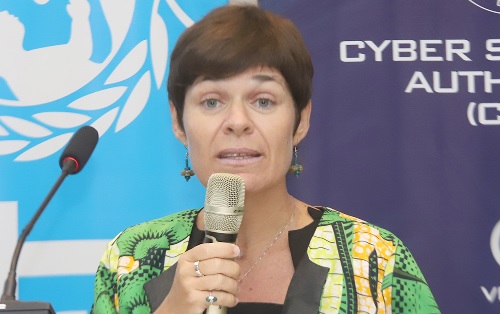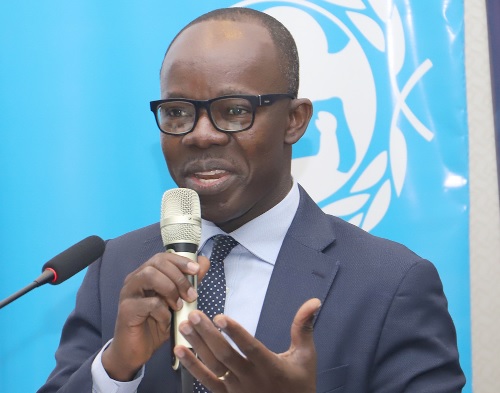
Deception without borders: Online child sexual exploitation in wake of digital learning platforms
A parent and Senior Lecturer at a University during a public lecture in Accra last month described as alarming the ramifications of leaving children to access online platforms using digital devices.
He said a lot of parents were skeptical about these online platforms when they allow their wards to access them due to the contents children were sometimes exposed to.
Narrating his personal experience at the lecture on the topic, “Advancing the frontiers in digital and distance learning in Africa (with a focus on the informal sector)”, Dr Adu-Manu, wondered how his 10-year-old ward was able to enable the YouTube application he had hidden from his kids on his tablet.
He said two hours after his son had used the tablet, there were sexual content adverts popping up on the tablet.
“I had disabled the YouTube and installed YouTube for kids thinking that he would use the YouTube for kids because of his age.
“I was sleeping and he picking up the tablet he navigated through all the settings and enabled those sites I had disbled.
“So one day, I took his tablet and realised that there were adult sites and I asked him who visisted those sites and he said they popped up automatically.”
Dr Adu-Manu said he advised his ward not to visit those sites.
Parents at the event nodded in agreement as they had in one way or the other experienced too.
Online
As part of innovations to revolutionise the educational system, the country’s effort to reach out to students via online tools gained more prominence following the COVID-19 pandemic in 2020.
Data from the World Bank indicate that the government delivered remote education to an estimated 4.45 million students.

With funds from the International Development Association (IDA) and the Ghana Accountability for Learning Outcomes Project (GALOP) a Learning Management System for online learning was developed to facilitate ongoing communications between students, parents, and teachers.
Digital platforms continue to make education more accessible to children as it provides them with opportunities beyond textbooks in order to get more informed on the subject areas.
Studies show, however, that being online is a risk factor of abuse of children despite the opportunities provided for learning and education.
OCSEA
According to the Terminology Guidelines for the Protection of Children from Sexual Exploitation and Sexual Abuse adopted by the Interagency Working Group in Luxembourg, January 28, 2016, online child exploitation and abuse commonly referred to as technology-facilitated child sexual exploitation and abuse involve the use of information and communication technology as a means to sexually abuse and/or sexually exploit children.

Lucia Soleti — Chief Child Protection, Unicef
A recent report by the Global Initiative Against Transnational Organised Crime (GI-TOC) has shown that Nigeria, Cote d’Ivoire, and Ghana have the highest rates of OCSEA in the subregion.
The report was unveiled in Accra on Friday, September 1, 2023, at a capacity building training for journalists.
It was organised by the Global Initiative, in collaboration with the Norbert Zongo Cell for Investigative Journalism in West Africa (CENOZO), the Cyber Security Authority (CSA), the Economic Community of West African States (ECOWAS), among other partners.
The report highlighted sexting (sending sexually explicit photographs or messages via mobile phones) as high risk factor for OCSEA, leading to the proliferation of sextortion schemes, forced sexual exploitation by criminal group in Abidjan.
Ghana’s situation
According a report by the United Nation’s Children Fund (UNICEF) and National Centre for Missing and Exploited Children (NCMEC), there were almost 22,000 reports of child sexual abuse material that were accessed, shared or produced from Ghana in 2022.
This number is up from 750 in 2016, a situation parents have expressed worry about.
Livia Wagner, the thematic lead on human trafficking at GI-TOC, disclosed that data from period 2019-2022, NCMEC CyberTipline report show a 72 per cent increase in child sexual exploitation and abuse material (CSEAM) uploading or sharing.
She lamented the lack of legally required victim protection and support procedures in the sub-region, adding that the government in the region relied primarily on overwhelmed non-governmental organisations (NGOs) and civil society organisations working on trafficking to provide victim support services.
Virtual SHS
Beginning next academic year, senior high schools (SHS) in the country are expected to study through digital platforms with an expert teacher as the conductor.
Known as the Ghana Virtual High School, the platform is expected to provide blended learning methodology in the schools, while providing opportunities for adult learners to remotely participate in the free SHS education online.

Michael Tetteh Doku — Advocacy and Communications Manager of Children and Youth In Broadcasting (CYIB)-Curious Minds
This was announced by the Minister of Education, Dr Yaw Osei Adutwum, at the second national digital and distance learning conference in Accra last Month (Aug 14).
At the conference, which was organised by the Centre for National Distance Learning and Open Schooling (CENDLOS) saw the launch of two digital platforms—Learning Passport and Minecraft Interventions.
Developed by UNICEF and Microsoft, the learning passport is an innovative mobile online/offline learning platform that provides children with continuous access to quality education with no classroom required, while the latter is also a virtual platform for studies.
Some students are already familiar with these platforms for educational purposes.
On what parents should look out for, the Africa Regional Project Manager at the International Centre for Missing and Exploited Children (ICMEC), Athena Morgan, mentioned increased screen time, secretive use of devices indoors, increase in contacts and followers, stress around need to be online, anxiety, among others, as some of the potential signs of online abuse.
Cybersecurity Authority
Currently, the CSA with its partners are dradting a Legislative Instrument (L.I.) to integrate targeted interventions on online Child Sexual Exploitation and Abuse (CSEA) into the Cybersecurity Act 2020 (Act 1038).
Highlights of the draft (L.I) to (Act 1038) include a proposal for systems that use age verification technologies to identify a child user, or the age group a child user falls under.

Dr Albert Antwi-Boasiako — DIrector-General, Cyber Security Authority
It also proposes the use of technical solutions, including artificial intelligence to detect, block and prevent harmful content or illegal content from being accessed by a child while detecting and preventing online grooming.
The Director-General of CSA, Dr Albert Antwi-Boasiako, said lack of structured, continuous, and measurable e-literacy education programmes and policies, had exposed vulnerable children to harmful content.
He noted that the approach could be developed through a collaboration with civil society groups who played critical roles in the protection of children online, by way of awareness creation, supporting victims and survivors and building tools to identify and track illegal and abusive materials.
The Chief Child Protection Officer, UNICEF, Lucia Soleti, said although Ghana’s situation was alarming, it was leading the way globally and in Africa, specifically, to advance safety of children online.
The Advocacy and Communications Manager of Children and Youth In Broadcasting (CYIB) – Curious Minds, a young people-led non-profit NGO, Michael Tetteh Doku, stressed the need for online learning to be encouraged, while educating parents on how to set child-friendly accounts on their devices and how to monitor wards actions and protect them accordingly.
Writer’s E-mail:
